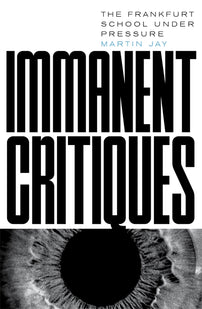Big Racket Man: Donald Trump and the Frankfurt’s school’s ‘racket society’
An unfinished analysis by Horkheimer gives us a way of understanding the Trump presidency as ‘gangsterish conduct’.

The Frankfurt School’s controversial critique of “the culture industry” claimed it was under the sway of commercial interests and that it blunted social discontent rather than genuinely reflecting the tastes and fulfilling the needs of its consumers. Read symptomatically, however, its products might reveal occluded truths of the society out of which they emerged. The eminent director Martin Scorsese’s 2019 hit movie The Irishman is a case in point. Interpreted through the lens of the half-forgotten analysis of “racket society” begun, but never completed by Horkheimer and his colleagues during the Nazi era, it reveals how much the universalizing abstractions of moral principle, the rule of law and impersonal market relations have been replaced by ad hoc transactional interactions of loyalty based on protection and obedience. In other words, it is the emblematic movie of the era of Donald Trump, which remains even more relevant the more we learn about his presidency after he was voted out of office.
Like virtually all attempts to characterize social or cultural totalities in simplified terms, the original “racket society” analysis overshot its target and underestimated the resilience of the impersonal abstractions that had seemingly been supplanted. It remains uncertain, however, if its new relevance will prove as temporary as it did when it was initially elaborated by the Frankfurt School to make sense of Nazi gangsterism. For merely restoring the sway of impersonal abstractions may not address the grievances that contribute to the rise of racket society in the first place. Formal equivalences, after all, underpin not only the impersonal rule of law and democratic citizenship, but also the exchange of commodities under capitalism. How the claims of the idiosyncratic and the non-identical can be recognized without undermining the defenses against arbitrary abuse erected by abstract formalism is still to be determined.
How does the racket society model help us understand our own current political situation? The United States remains, of course, a long way from being a failed state or a kleptocracy of oligarchs. And yet there are sufficient warning signs to be concerned by tendencies moving in an ominous direction. Despite all the obvious caveats, the racket society model may have something to teach us, even if only as a cautionary example. In 2016, after all, we elected a president who is almost too perfectly cast as a protagonist in a racketeering narrative, allowing commentators easily to label him, as did David Frum recently, “a gangster in the White House.”
Not only was he notorious for running numerous business scams and engaging in dubious real estate deals before his election—the Wikipedia article on his “legal affairs” takes ten minutes to read and includes a section devoted entirely to allegations of his “business links to organized crime”—but he continued to operate in the same way with relative impunity once he was inaugurated (in fact, his inauguration commit- tee was soon itself investigated for influence peddling). The list of Trump’s former underlings who served, are serving, or will soon serve jail time—Paul Manafort, Michael Cohen, Michael Flynn, Rick Gates, George Papadopolous and Roger Stone—is almost matched by one listing his former enablers who
have denounced him as a dangerous fraud—Omarosa Manigault Newman, Anthony Scaramucci, Tom Barrack and the hapless Michael Cohen. He even managed, along the way, to acquire a favored son-in-law whose father was a convicted felon for illegal campaign contributions, tax evasion and witness tampering. Cohen’s successor as Trump’s personal lawyer, Rudy Giuliani, once celebrated for his prosecutorial role in the Mafia Commission Trial in 1985–6, in which the heads of New York’s “Five Families” were charged under RICO (the Racketeer Influenced and Corrupt Organizations Act of 1970) for extortion, labor racketeering and murder for hire, earned a very different kind of notoriety through his involvement with the accused campaign finance law violators Lev Parnas and Igor Fruman.
Trump’s habitual choice of shady friends and his own gangsterish conduct in his personal affairs, perhaps best emblematized by his hush payments to porn star Stormy Daniels, are echoed in the way he often operates on the public stage. Intimidating witnesses, threatening retaliation against whistleblowers who “rat” on him, demanding personal loyalty from subordinates over adherence to the law, mocking the emoluments clause of the Constitution—these are just the most egregious examples. In foreign relations, the doctrine of America First means Trump treats long-standing allies in a transactional way, turning NATO and our alliance with South Korea into protection rackets in which payments have to be increased to assure security, and tariff policy is used to coerce obedience. His unapologetic affinity for strongmen who dominate countries with the same indifference to the rule of law and enrich themselves in the process makes unmistakably clear his values and priorities. And the supine acquiescence he has extorted from the Republican Party, exemplified by the loyalty he commands among politicians in Congress terrified of being challenged in primary fights, shows how successful protection can be in ensuring obedience. Kim Jong Un may be mockable as “little rocket man,” but Trump has no less richly earned the nickname “big racket man.”
—An edited excerpt from Immanent Critiques: The Frankfurt School Under Pressure by Martin Jay.
[book-strip]
